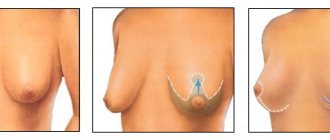Why is embryo transfer accompanied by discharge?
When embryo transfer has taken place, discharge is almost inevitable - they are natural companions of the female reproductive system throughout life (and can change their character depending on many factors and the period of the cycle).
But patients should distinguish which discharges during embryo implantation are normal, and in which cases the alarm should be sounded.
Often expectant mothers worry about any vaginal discharge after IVF, not knowing what is normal and what requires treatment.
In Internet search engines, some of the most popular queries from patients of IVF clinics are “embryo transfer, discharge,” “discharge, day of embryo transfer,” “discharge during embryo implantation.”
Of course, in any case, it is better to draw knowledge not from the Internet, but from qualified reproductive doctors - such as the specialists of the Volgograd IVF Center, who, thanks to many years of successful work experience, can ensure the health of the patient and her unborn child.
However, every expectant mother should know the general signs of normal and pathological discharge after IVF.
Transfer of a thawed embryo (cryotransfer)
Memo for patients
When might cryopreservation of embryos be needed?
This is convenient if, after an IVF program, embryos of excellent quality remain.
Stages of cryotransfer
- First, you need to visit your doctor to have an ultrasound done on the 2-3rd day of your menstrual cycle.
If you are in another region, you can have an ultrasound done at your place of residence. On the same day you need to call your doctor at Scandinavia AVA-PETER.
- The doctor will contact you and prescribe therapy to prepare the endometrium for transfer.
- During preparation to monitor endometrial maturity, the doctor may additionally prescribe one or three more ultrasounds.
- Usually the transfer occurs on the 15th–24th day of the cycle, but it can be on other days - at the discretion of the doctor. The number of embryos transferred is discussed with the treating doctor.
What examinations and tests are needed for cryotransfer?
The list of examinations for cryotransfer is the same as for the IVF program. Tests with a long shelf life can be renewed before the menstrual cycle in which the transfer will be planned. But it is better to update analyzes with a short period of time directly in the cycle, when the transfer itself is planned. Then the tests will be relevant immediately on the day of the procedure. You can read about the relevance of analyzes on our website.
To date, the test with the shortest validity period is a nasal and throat swab using the PCR method for the presence of the new coronavirus. It is valid for only 7 days. Therefore, it should be submitted only when you already know the exact date of transfer.
Your doctor may order additional tests depending on your current condition.
Cryoprotocol options
Together with your doctor, you can choose the most suitable cryoprotocol option: for example, hormone replacement therapy or a natural cycle. It all depends on individual indications.
How long can embryos be stored?
Embryos can be stored for decades. The quality of the embryo does not suffer from the duration of storage. Exceptions are extremely unlikely.
Do I need to prepare specially for the procedure?
On the day of the transfer, no special preparation is required; you can eat and drink water.
How long does the transfer take?
The embryo transfer procedure itself takes about 5–7 minutes. In the vast majority of cases, it is painless and does not require anesthesia. After it you need to lie down for a while - about 15-20 minutes. The doctor then gives further recommendations.
Does my partner need to come to the clinic on the day of the transfer?
It depends on what is written in the application for cryopreservation of embryos. If the document only states the woman's consent to the transfer, then her partner is not required to be present. If it is written that the transfer is possible with the consent of both partners (spouses), then either the man comes in person, or the woman provides notarized consent from the spouse.
What precautions are there after embryo transfer?
For at least two weeks before the first pregnancy test, the following recommendations should be followed.
- You should not have sex for 14 days after the transfer. Additionally, this issue can be discussed with a fertility specialist.
- There is no need to take hot baths, visit the sauna or bathhouse.
- Do not lift heavy objects.
- Avoid visiting places with a lot of people to avoid getting ARVI.
- You should also avoid contact with those who are sick with easily transmitted infectious diseases.
- There is no need to actively engage in sports, especially doing abdominal exercises, running, or jumping.
- It is better to avoid any worries.
How to increase your chances of pregnancy?
After the transfer, it is best to lead a measured lifestyle. If you want to be active, you can just take a leisurely walk: go to a park or a museum. It is worth eating a balanced diet, listening to yourself. Keep yourself busy with calm activities, during which you don’t have to strain yourself too much, and the time will pass unnoticed. But taking any medications should be discussed with your doctor in advance.
When can you check if you are pregnant?
12–14 days after the transfer, you must come to the clinic and take a blood test to check the level of human chorionic gonadotropin (hCG). From the first days of pregnancy, its level constantly increases and begins to be determined using analysis after a couple of weeks. Based on the level of hCG, the doctor can understand whether the embryo has attached to the endometrium or not.
What to do if pregnancy occurs?
You must follow all doctor's instructions after embryo transfer. 14 days after the blood test for hCG, an ultrasound of the pelvic organs should be done. It is necessary to exclude ectopic pregnancy and to confirm that pregnancy is developing. Usually by this time a fertilized egg appears in the uterine cavity and the fetus has a heartbeat.
What to do if pregnancy does not occur?
If, according to the results of a blood test for hCG or ultrasound, there is no pregnancy, you need to order a call back from your fertility specialist. You should immediately discuss further actions with your doctor. It always makes sense to enter into new IVF protocols with us: Scandinavia AVA-PETER has one of the highest success rates in Russia - 55.2%. Don’t be afraid to go to a psychologist: it’s normal to worry about a failed attempt, a specialist will help you get through this stage. Scandinavia AVA-PETER has professionals who specialize in such stories.
Is it possible to do cryopreservation under the compulsory medical insurance policy?
Yes, for this you need to receive a referral for cryotransfer in your region in advance. You can find out about all stages of treatment in Scandinavia AVA-PETER under the compulsory medical insurance policy by phone or on the website.
Discharge on the day of embryo transfer
Reproduction doctors believe that on the day of embryo transfer, discharge should not differ significantly from normal.
Normal physiological secretions have the following characteristics:
- Colorless (transparent)
- Homogeneous
- Without smell
- Scanty (no more than one teaspoon per day)
- Do not cause unpleasant sensations (itching, burning, etc.)
Such discharge on the day of embryo transfer is standard mucus produced by the vagina to maintain natural microflora and acid levels, as well as to prevent dryness. They are considered normal and are not a cause for concern.
Sometimes on the day of embryo transfer, women encounter discharge of a different nature - scanty bloody traces on the pad (women call this among themselves the word “smeared”), which can be accompanied by an uncomfortable pulling sensation in the lower abdomen and last for several days.
In such a case (and in case of any abnormal discharge on the day of embryo transfer), you should immediately consult your doctor.
Discharge during embryo implantation
For a certain period of time after the fertilized egg is transferred to the uterus, the discharge may change its character, which is possible during implantation of the embryo, that is, its successful attachment to the uterine wall.
Implantation can occur 6-12 days after the transplantation procedure - changes may occur during the implantation of the embryo into the endometrium of the uterus. Thus, a third of IVF patients report bleeding during embryo implantation.
However, reproductive specialists believe that implantation bleeding normally turns the discharge pink (not red or other bright shades!).
Normal discharge during embryo implantation has the following characteristics:
- Pale pink (occasionally beige) color
- Scarce
- Without smell
- Duration – from several hours to two days (no more!)
- Accompanied by a barely perceptible pulling sensation in the lower abdomen (in some cases)
If discharge during embryo implantation alarms a woman, is abnormal, or is accompanied by other symptoms or deterioration in health, she should immediately consult a doctor.
Dangerous discharge after embryo transfer
Not all discharge after IVF is considered normal. There are some types of pathologies that indicate serious problems in a woman’s body or an unsuccessful attempt to transfer an embryo.
The following discharges after embryo transfer are considered pathological:
- Bloody
- Brown
- White
- Watery
Bloody discharge that begins two weeks (or later) after embryo transfer is a very dangerous symptom.
Bleeding after embryo transfer may be caused by one of the following:
- Detachment of the embryo and threat of miscarriage
- Frozen pregnancy
- Hormonal disorders
- Low levels of progesterone in the body (possibly low dosage of medications)
With timely consultation with a doctor and immediate initiation of treatment, most problems can be eliminated.
Brown discharge after embryo transfer alarms reproductologists, as it may indicate a hormonal imbalance in the body (usually estradiol and progesterone).
This happens when women independently, without medical advice, change their treatment regimen or dosage of hormonal drugs. It is not uncommon for patients to mistake spotting after embryo transfer for the onset of menstruation and abruptly stop taking progesterone prescribed by a fertility specialist.
This behavior (especially if the cause of discharge after IVF lies in something else) is a serious threat to pregnancy, which could have already occurred, but risks being disrupted due to the cessation of hormonal support from the outside.
To make a more correct diagnosis and possibly change the dosage of medications and treatment regimen, the doctor at the appointment takes tests and conducts an ultrasound examination.
White, foul-smelling discharge (especially a cheesy consistency) that accompanies embryo transfer may be a symptom of thrush. Thrush in a pregnant woman can be caused by taking potent drugs (in preparation for the IVF procedure), which change the acidity of the vagina.
Heavy, watery discharge after IVF (especially greenish or foul-smelling discharge) is often caused by vaginosis. This disease must be treated, since in an advanced stage it can cause intrauterine abnormalities in the development of the fetus.
Causes of bleeding after IVF
Among the reasons for the appearance of bloody discharge after the in vitro fertilization procedure may be the following:
- violation of the technique of taking hormonal drugs according to the regimen prescribed by the doctor
- significant physical activity not only during the implantation period, but throughout pregnancy
- the impact of stress and emotional tension of a woman
- incomplete hormonal deficiency, which leads to insufficient hormonal levels of a woman to bear a child.
- violation in the placement method or impaired absorption of progesterone suppositories.
Often, women after IVF complain of minor nagging pain, which is possible when there is a threat of abortion or is the result of injury to the ovaries during puncture, which is considered normal up to 12 weeks. In order to accurately establish a diagnosis, a blood test for hCG and ultrasound monitoring are performed.
If heavy bleeding occurs after embryo transfer and negative hCG, this indicates an unfavorable outcome of the procedure.
The reasons for such failure may be the following:
- a zygote with genetic defects (therefore, preimplantation diagnostics should be performed to exclude them)
- the presence of inflammatory processes or endometrial thickness of more than 15 mm
- maintaining a sedentary lifestyle or excessive physical activity after implantation
- leading an unhealthy lifestyle - smoking, drinking alcohol and drugs
- as well as the woman’s age over 39 years, which significantly reduces the ovarian reserve and the chances of a favorable pregnancy outcome.
Menstruation after IVF, indicating unfavorable implantation, or implantation bleeding that occurs in the first three days after transplantation, can very often be confused, but there are signs that allow them to be distinguished, so if blood appears on your underwear, you should immediately seek medical help.
The appearance of slight bright spotting or brown discharge, engorgement of the mammary glands, nagging pain in the lower abdomen, morning nausea and irritability indicate implantation bleeding.
In this case, you need to very strictly monitor the amount, intensity, nature and color of the discharge, and if bleeding increases, you should urgently seek qualified medical help, since this condition requires treatment and observation in a hospital.
After unsuccessful IVF, when should you get your period? In the case of a negative hCG value, after IVF, menstruation will begin on the third or 12th day after the replantation. First, bleeding appears in the form of brown discharge, and then heavy menstruation, but a woman should not be upset right away, since many couples become pregnant after the second or third attempt, and stress and anxiety negatively affect the body’s preparation for the next attempt at in vitro fertilization. If the hCG is negative, then the chances of pregnancy are zero, while menstruation may be delayed and many women flatter themselves with hopes that there is a pregnancy and the implantation of the embryo was successful. No, the method of determining blood for hCG is correct in 100% of cases, but the absence of menstruation can be associated with the development of a cyst or ectopic pregnancy, sometimes stress and anxiety as a result of an unfavorable outcome of fertilization. It happens that the first pregnancy occurs after unsuccessful IVF in the first two weeks, and subsequent ones are delayed, which requires certain hormonal correction.











